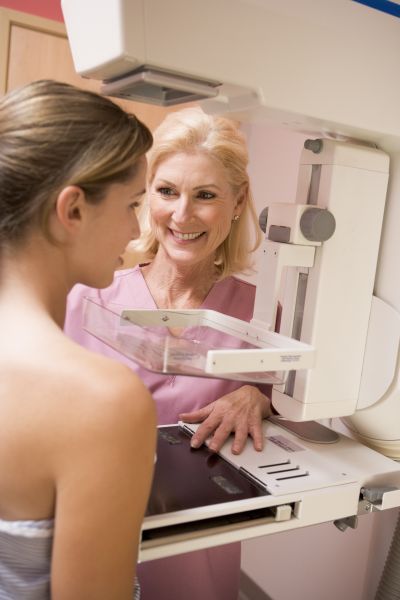US medical task force 'fumbled' mammogram message

The heads of a high-level US medical panel acknowledged Wednesday they "fumbled the message" about when women should begin having routine screening mamograms in a controversial report last month.
"We communicated very poorly," Diana Petitti, vice chair of the US Preventive Services Task Force (USPSTF), said during an hours-long grilling by lawmakers about the report, which caused a firestorm when it was published in a medical journal two weeks ago.
"We fumbled the message," Ned Calonge, the chair of the task force, told reporters during a recess.
In the report, the task force said there was "evidence that the net benefit of having regular screening mamograms was small for women aged 40 to 49."
It recommended that regular mammograms to screen for breast cancer start at 50 instead of the currently recommended 40 and that women have them every two years instead of annually.
The advise was almost immediately denounced by doctors who warned that if it were followed more women would die from breast cancer, which already claims some 40,000 lives a year in the United States.
Petitti agreed that one of the task force's main recommendations was that women age 50-74 should have a mamogram every other year, but was less unequivocal than the report that women start routine breast cancer screening later in life.
"The decision to start having routine breast screening before the age of 50 should be an individual one taken by a woman in consultation with her doctor," Petitti said.
"The message we wanted to convey is that starting routine screening mammograms at age 40 should not be automatic," she told AFP after the hearing.
"Women have to recognize the trade-off between benefit and harm, that the net benefit is small when you start with routine screening early.
"That's not to say that many doctors may decide to start screening women in their 40s, and the task force would fully support that," she said.
The task force will not retract the contentious recommendations about mammograms because "nothing has happened to make us believe that we got the evidence wrong or missed studies or misassessed the magnitude or certainty of the net benefit of routine screening" for younger women, Petitti told AFP.
The report was compiled based on data from 600,830 women who underwent routine mammographs between 2000 and 2005.
The task force had never intended to suggest to women under 50 that they should not be screened for breast cancer - even though the recommendations posted on the task force's website are preceded by the statement: "The USPSTF recommends against routine screening mammography in women aged 40 to 49 years."
"We have to figure out how to get that taken off the website," Petitti said in response to a question from a Republican lawmaker.
Republican members of Congress argued that the report was a first step towards rationing health care and would put a bureaucrat between doctors and patients, both criticisms they have repeatedly levelled at the Democratic Party's proposals to reform the US health care system.
But Petitti took pains to point out that the report was completed in June 2008 - during the presidency of Republican George W. Bush.
Join our commenting forum
Join thought-provoking conversations, follow other Independent readers and see their replies
Comments